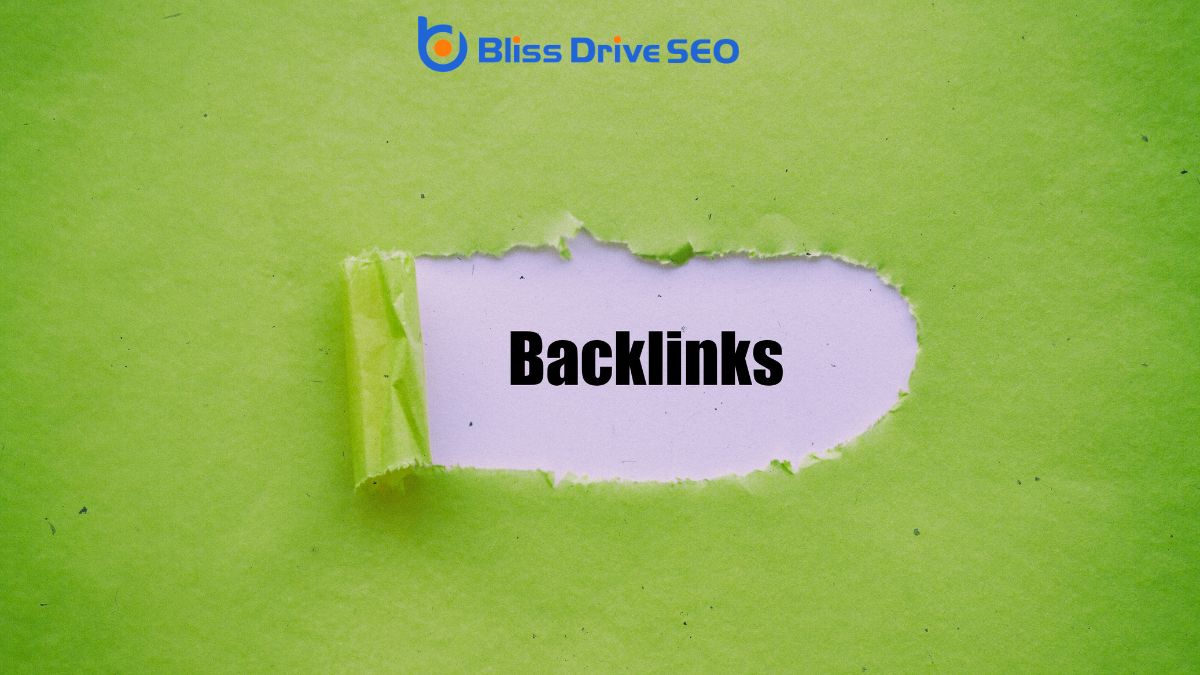Digital Marketing Services
Learn More About Us

You're probably wondering how many backlinksLinks from other websites pointing to your website, crucial for SEO. per month are considered safe for your site. It's a tricky question because it depends on several factors, like your website's domain authority and the nature of your industry. You can't just focus on the numbers; the quality of those links matters, too. Google's algorithm is smart enough to notice unnatural patterns, which can leadA potential customer referred by an affiliate who has shown interest in the product or service but h... to penalties. So, how do you strike the perfect balance between quantity and quality without risking your site's reputation? Let's explore the nuances and strategic approaches to building a robust backlink profile.

Backlinks are vital elements of SEO that you can't afford to overlook. They act as endorsements from other websites, signaling to search engines that your content is credible and valuable. When another site links to yours, it's like a vote of confidence, indicating that your page is worth visiting. This can boost your site's authority and improve its ranking in search engine results pages (SERPs). Understanding the basics of backlinks is important for leveraging their power effectively.
You need to know that not all backlinks are created equal. The quality of a backlink depends on the authority of the site linking to you, the relevance of its content to yours, and the context in which the link appears. High-quality backlinks from reputable sites carry more weight than numerous low-quality ones.
It's also important to understand the concept of anchor textThe clickable text in a hyperlink, important for SEO as it provides context for the linked page.—the clickable words in a hyperlink. Search engines use it to determine the relevance of the linked page.
To build a solid backlink profile, focus on creating valuable content that naturally attracts links. Engage in outreach to industry influencersIndividuals with the power to affect the purchasing decisions of others due to their authority, know... and collaborate on guest posts to gain authoritative backlinks.
When you're considering how many backlinks to build each month, focus on your domain authority and link acquisition rate.
A high domain authority lets you safely acquire more links, but a sudden spike can still raise red flags.
Keep your link-building consistent and natural to avoid penalties.
To truly grasp the impact of domain authority on safe backlink quantity, consider it as a pivotal factor in your SEO strategy. Domain authority, a score that predicts a website's ability to rank on search engines, directly influences how many backlinks you can safely acquire. If your website has high domain authority, you can generally gain more backlinks without triggering red flags from search engines. This is because a well-established site is expected to attract more links naturally.
In contrast, a site with lower domain authority needs to be cautious. Rapidly acquiring many backlinks can appear unnatural, leading search engines to suspect manipulative tactics. This could result in penalties, harming your site's ranking rather than boosting it.
How quickly should you acquire backlinks to guarantee a safe and effective SEO strategy? The speed at which you gather backlinks plays a vital role in maintaining a natural link profile. When you accumulate links too rapidly, search engines might flag your site for suspicious activity, potentially leading to penalties. A steady, gradual acquisition not only appears more natural but also allows you to focus on quality over quantity, ensuring the links you gain are relevant and authoritative.
Consider your website's age and current authority. A new site should start with a modest pace to build a credible foundation, while an established site can handle a more aggressive approach. Keep an eye on your competitors' strategies, as they provide valuable insights into an industry-standard pace, helping you adjust your tactics accordingly.
It's important to diversify your link sources. Relying heavily on a single type of backlink might raise red flags. Instead, aim for a mix of links from blogs, forums, and reputable websites.
Also, remember that content quality drives organic link growth. By producing valuable, shareable content, you naturally encourage others to link to your site, supporting a sustainable and safe link acquisition rate.
When you're building backlinks, remember that Google's algorithm values quality over quantity. A few high-quality backlinks can boost your site's ranking more effectively than numerous low-quality ones.
Focus on securing links from reputable sources to align with Google's preferences and enhance your online presence.
Backlinks play an important role in Google's algorithm by acting as endorsements of your site's credibility and authority. When other websites link to yours, it signals to search engines that your content is valuable and trustworthy. This can improve your site's ranking in search results, making it easier for potential visitors to find you. Understanding the role of backlinks involves knowing how they influence Google's perception of your site.
Here's how backlinks impact your site:
Understanding these aspects can guide your backlink strategy effectively.
While backlinks greatly influence your site's ranking, not all links are created equal in the eyes of Google's algorithm. It's essential to focus on quality over quantity. High-quality backlinks from reputable and relevant sites hold more weight and can significantly enhance your search engine ranking. On the other hand, spammy or irrelevant links can harm your site's reputation and potentially lead to penalties from Google.
You're probably wondering how to identify quality backlinks. Consider the source. A link from a well-established site within your industry is far more valuable than multiple links from low-authority or unrelated sites. Google's algorithm prioritizes links that demonstrate trustworthiness, relevance, and authority. As a result, investing time in building relationships with reputable sites is essential.
Engaging content that naturally attracts links is another key strategy. When you create valuable content that others want to share, you organically earn high-quality backlinks. Avoid shortcuts like buying links or using link farms. These tactics can backfire, harming your site's credibility.
In the world of SEO, remember this: a few strong, quality backlinks can outweigh hundreds of low-quality ones. Prioritize building a solid link profile with integrity and focus on genuine connections.
In the ever-changing landscape of digital marketing, understanding the balance between quality and quantity in backlinks is essential for success. You might think more backlinks equate to better results, but that's not always the case. High-quality backlinks can significantly impact your site's ranking, while a large number of low-quality links might harm it. Here's what you need to take into account:
When you're building backlinks, it's vital to contemplate sector-specific link strategies that align with your industry. Understanding competitive benchmarking practices helps you gauge what's typical and effective in your field. By focusing on what your competitors are doing, you can tailor your approach to meet and surpass industry standards.
For businesses looking to enhance their online presence, understanding sector-specific link strategies can make all the difference. Different industries have unique norms and expectations when it comes to backlinks, so tailoring your approach is essential. In some sectors, a steady stream of links is crucial, while others require a more cautious approach. Here's how you can align your backlink strategy with your industry:
Understanding industry-specific link strategies sets the stage for examining competitive benchmarking practices in your sector. By analyzing what your competitors are doing, you can determine the most suitable number of backlinks to aim for monthly. Start by researching key players in your field. Tools like Ahrefs or SEMrush reveal how many backlinks they acquire and the quality of those links. This information helps you establish a baseline for your efforts.
Next, focus on sector-specific norms. Some industries naturally have more backlinks due to content demand or engagementThe interactions that users have with a brand’s content on social media. levels. For instance, tech and finance might see higher link volumes than niche hobbies. By understanding these norms, you avoid setting unrealistic goals or raising red flags with search engines.
Moreover, don't just mimic competitors; seek opportunities to outperform them. Identify gaps in their strategies and capitalize on them. Look for high-authority sites they're not targeting or leverage emerging trends they overlook. This proactive approach sets you apart.
To effectively keep tabs on your website's SEO health, monitoring backlink growth is crucial. You can't just set it and forget it; staying informed about how your backlinks evolve helps you make strategic decisions. Here's how you can do it effectively:
Exploring the world of backlinks can be challenging, but avoiding penalties is essential for maintaining your site's reputation and search engine ranking. Search engines, like Google, penalize sites that engage in manipulative link-building practices. To steer clear of these pitfalls, focus on acquiring high-quality backlinks from reputable sources.
Understand that quality trumps quantity; a single link from an authoritative site can be more beneficial than dozens from low-quality ones.
You should avoid link schemes, such as buying links or participating in link exchanges, as these can trigger penalties. Instead, prioritize earning links naturally by creating valuable content that others want to reference. Monitor your backlink profile regularly, keeping an eye out for suspicious or harmful links that could hurt your site. If you spot any, consider using Google's disavow tool to neutralize them.
Also, stay informed about updates to search engine algorithms. These updates can impact how backlinks are evaluated, so being aware helps you adapt your strategies accordingly. By focusing on ethical practices and staying vigilant, you can effectively avoid penalties and maintain a strong online presence.
Building a natural backlink profile begins with steering clear of manipulative practices and embracing organic growth. You want search engines to view your site as credible and trustworthy, which demands a strategic approach. Focus on quality over quantity, valuing genuine connections rather than artificial schemes.
To create a natural backlink profile, consider these key steps:
Longevity defines the success of any link-building strategy, and sustainable practices guarantee your efforts stand the test of time. To ensure your link-building is enduring, focus on quality over quantity. Rather than chasing a specific number of backlinks each month, aim for links that offer genuine value.
Seek out websites that are relevant to your niche and have good domain authority. These links will provide more lasting benefits than numerous low-quality ones.
Diversification is another critical element. Relying solely on one type of link can be risky. Mix things up by incorporating a variety of link types, such as guest posts, blog comments, and partnerships. This approach creates a more natural backlink profile, reducing the risk of penalties.
Consistency is key. Develop a plan that lets you build links steadily over time rather than in short, aggressive bursts. This gradual approach helps maintain a stable online presence and avoids drawing unwanted attention from search engines.

When evaluating the effectiveness of your link-building efforts, several tools for backlink analysis can provide invaluable insights. These tools help you understand the quality of your backlinks, identify potential issues, and optimize your strategy. Here's a list of four essential tools that can enhance your backlink analysis game:
Using these tools, you'll gain a deeper understanding of your backlink landscape, enabling you to make well-informed decisions.
To safely build backlinks, focus on quality over quantity. Diversify your sources and aim for steady, natural growth. High-quality backlinks from authoritative, relevant sites are essential for boosting your site's authority and improving search engine rankings. Avoid penalties by understanding industry norms and maintaining a natural backlink profile. Use tools for backlink analysis to keep track of your progress. With sustainable link-building practices, you'll enhance your site's credibility and drive long-term success.
